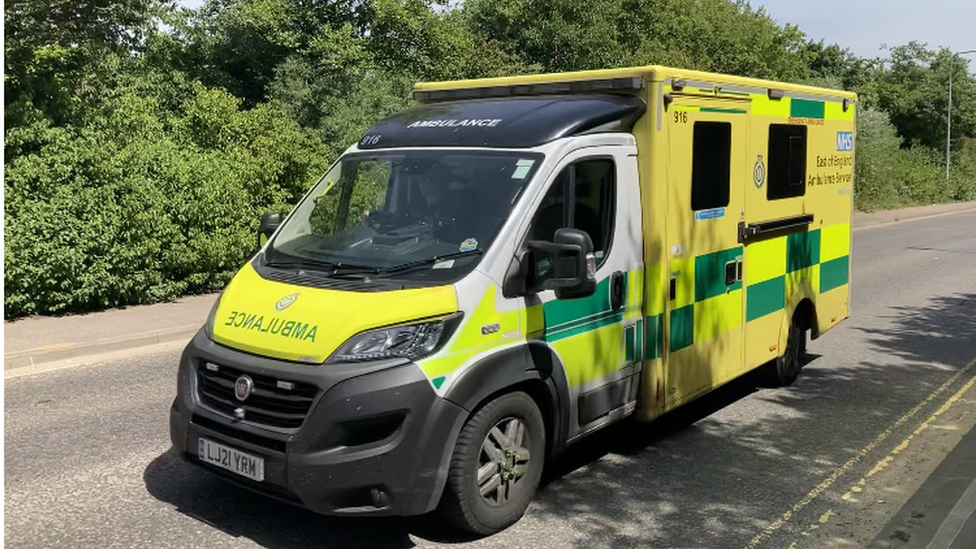Ambulance service seeks staff to attend emergencies in spare time
- Published
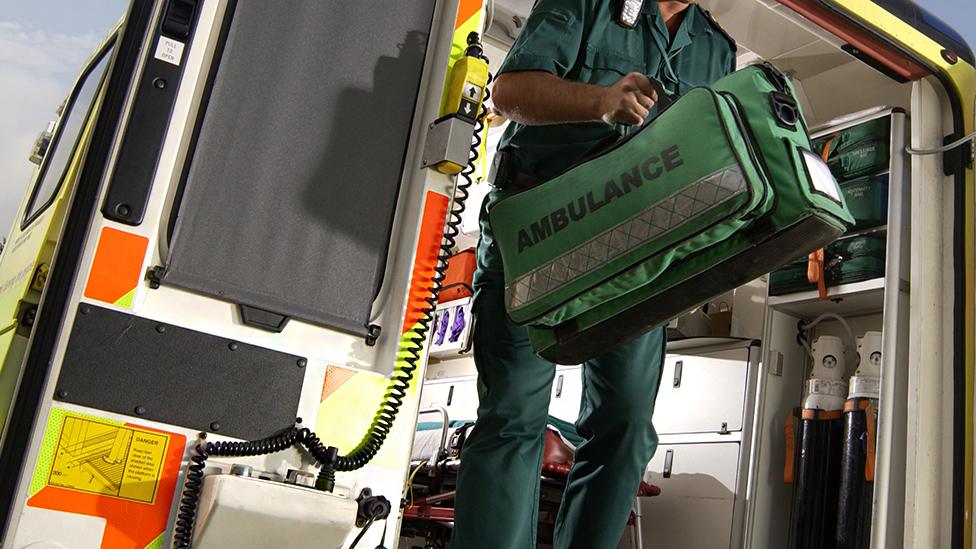
The East of England Ambulance service is looking for staff to volunteer for out-of-hours emergency responses in their local community
An under-pressure ambulance trust is seeking volunteers to attend emergency calls in their spare time.
The East of England Ambulance Service (EEAS) is trialling a 'volunteer staff responder scheme' for employees to rush to the most urgent calls within their local community.
The move has been criticised by a union and one paramedic described it as a "nail into the coffin" of staff morale.
But the trust said the idea came from staff and will benefit people's lives.
EEAS says the scheme, external will be piloted in the coming weeks in Cambridgeshire, Norfolk and parts of Suffolk. The ambulance service also covers Bedfordshire, Essex and Hertfordshire.
The aim is to quickly get to patients classed as category one, the most urgent life-threatening cases.
A similar scheme already exists, with community first responders, external (CFR) drawn from members of the public.
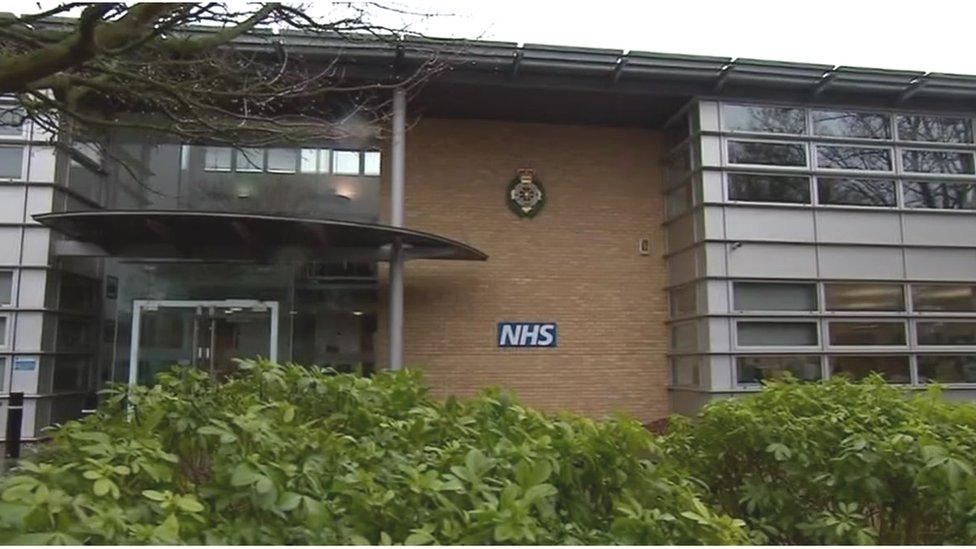
EEAS says the scheme will improve response times to some of the most critically ill patients
But the 15 staff members taking part in the trial will be those with a level four qualification or above - emergency medical technicians.
Apprentices, newly qualified technicians and paramedics will be excluded until they have achieved the appropriate level of clinical experience.
The trust says hospital survival rates are improved by responding quickly to the most critically ill patients.
Fifteen-hour shifts
A paramedic who contacted the BBC was critical of the idea, and said: "This is just another nail into the coffin of staff morale."
The man, who is remaining anonymous, said: "We are running around non-stop every shift, going to calls that have been waiting in excess of 10 hours for a response, unprecedented delays at all major hospitals to off-load and compounded with daily late finishes which turn 12 hour shifts into anything between 13 and 15 hours.
"The trust would like us to sign up for more and do it on a voluntary basis!
"Given what I have mentioned above it's certainly not for me or the vast majority of my colleagues."
Another paramedic said the service previously had a staff responder scheme but it was discontinued and replaced by the community first responders, who are "quite limited in their clinical skillset - some were very good but many were poor and sometimes unreliable".
He continued: "Covid hit the CFR scheme hard. PPE issues and equipment resupply problems caused friction with some volunteers, so they left.
"The new staff responder scheme feels like yet another desperate attempt to bolster the trust's abysmal response times.
"It looks good but it's not really going to be effective. Why would exhausted staff attend calls if you have done a 12 hour shift?"
The trust said the CFR scheme had been in place since 1997 and that they were introduced to support out of hospital cardiac arrests and have developed since then.
A spokesman added: "We have many very dedicated CFRs who give hundreds of thousands of hours of cover on an annual basis and save lives and also support community education."
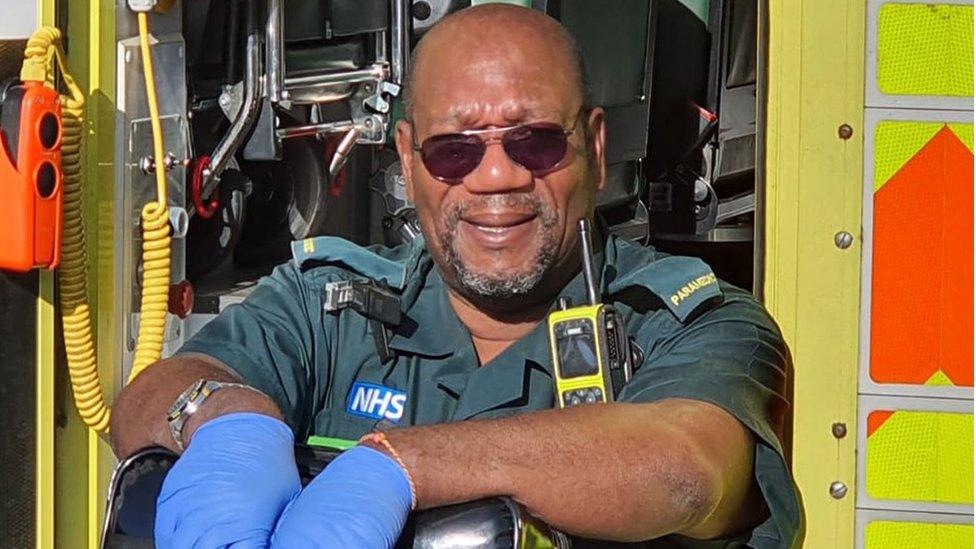
Unison branch chair Glenn Carrington said paramedics would already be exhausted when they came off shift
The trust, along with ambulance services across the country, has been struggling with response times and is currently at Resource Escalation Action Plan (REAP 4) - the highest state of alert below a critical incident.
Unison EEAS branch chairman Glenn Carrington said: "The ambulance service is under enormous and unprecedented pressure.
"We're struggling to cope with the huge A&E waiting times, spending hours waiting outside full hospitals unable to answer new calls.
"There's no doubt that urgent action is needed but asking already stretched staff to start doing extra work for free is not the answer.
"Ambulance crews do hugely stressful and tiring work. We need to take time off to relax and recover on rest days, not sit by the phone ready to rush off to another emergency."
'Entirely voluntary'
An East of England Ambulance Service spokesperson said: "Following the request of our staff we are introducing a voluntary staff responder scheme so they can respond to the emergencies in their local communities.
"This is similar to our community first responder skills but allows our qualified staff to use more of their skills. This will be entirely voluntary to interested members of staff.
"This trial follows a similar scheme run by North West Ambulance Service and will be introduced in areas where we receive high numbers of life-threatening calls.
"We are currently recruiting volunteers to this scheme ahead of the planned start of the trial later this summer."

Find BBC News: East of England on Facebook, external, Instagram, external and Twitter, external. If you have a story suggestion email eastofenglandnews@bbc.co.uk, external
Related topics
- Published13 July 2022
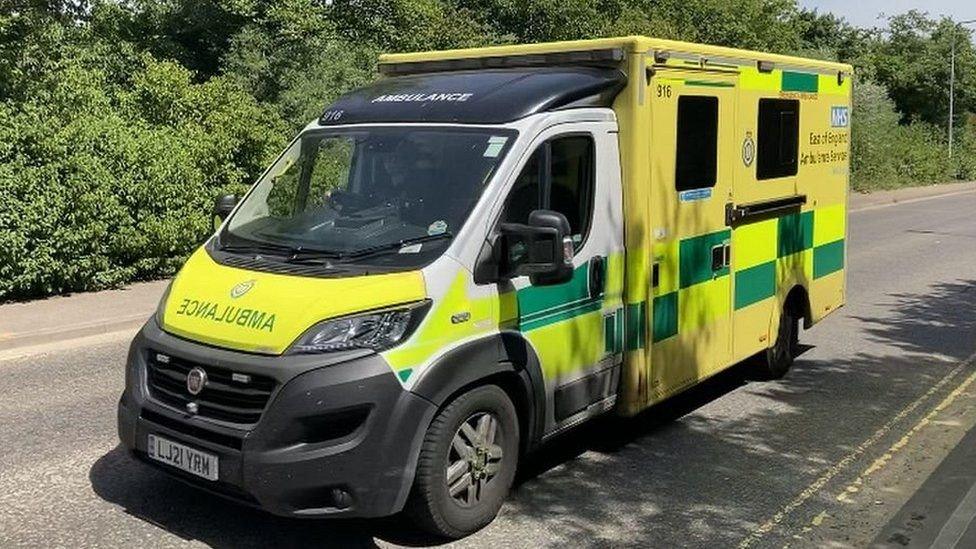
- Published18 June 2022
